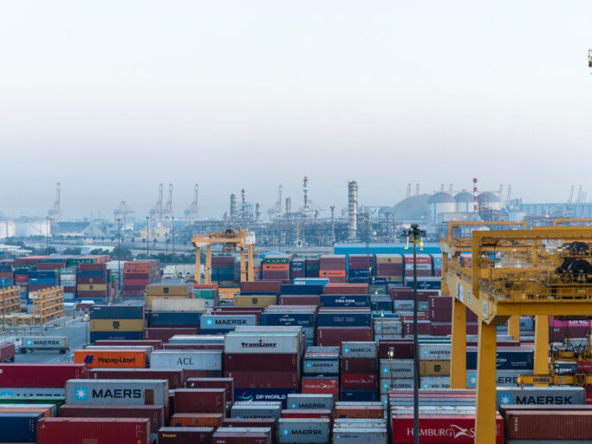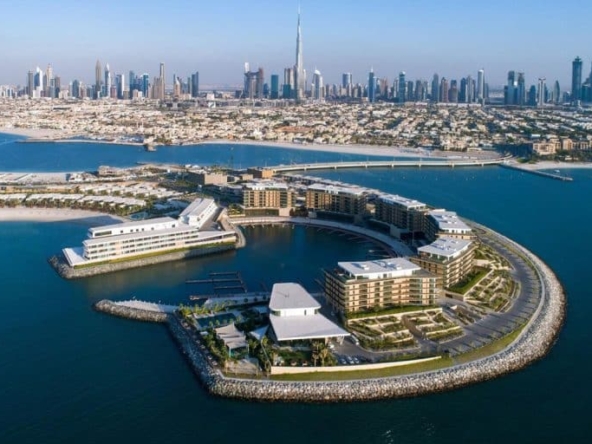The United Arab Emirates (UAE) has established itself as one of the most dynamic real estate markets in the world, attracting investors from every corner of the globe. However, this immense growth and openness have also made it a potential target for money laundering (ML) and financial crime. To maintain investor confidence and international reputation, AML (Anti-Money Laundering) compliance has become a central pillar of the UAE’s regulatory landscape, particularly in the real estate sector.
This article explores the importance of AML compliance in UAE real estate, the regulatory framework in place, and how industry participants can effectively safeguard transactions and prevent financial misconduct.
Understanding AML Compliance in UAE Real Estate
AML compliance refers to the set of laws, regulations, and procedures designed to prevent criminals from disguising illegally obtained funds as legitimate income. In the UAE real estate market, AML rules are crucial because property purchases often involve large sums of money and can serve as a vehicle for concealing illicit funds.
The UAE government, through the Ministry of Economy (MoE), has made real estate brokers, developers, and agents part of the Designated Non-Financial Businesses and Professions (DNFBPs) sector. This means they are legally obligated to monitor transactions, report suspicious activities, and maintain transparency to ensure compliance with Federal Decree-Law No. 20 of 2018 on Anti-Money Laundering and Combating the Financing of Terrorism (AML-CFT).
The Legal Framework: A Strong Foundation Against Financial Crime
The UAE’s AML laws are robust and aligned with international standards set by the Financial Action Task Force (FATF). The key legal frameworks include:
1. Federal Decree-Law No. 20 of 2018
This decree provides the foundation for AML and CFT measures in the UAE. It defines the roles of financial institutions, DNFBPs, and competent authorities in combating money laundering and terrorist financing.
2. Cabinet Decision No. 10 of 2019
It specifies the executive regulations for implementing AML obligations, detailing customer due diligence (CDD) requirements, reporting standards, and record-keeping practices.
3. UAE Ministry of Economy Directives
In 2022, the Ministry introduced specific compliance obligations for real estate professionals, mandating Enhanced Due Diligence (EDD) when dealing with high-value property transactions, especially those involving cash payments, cryptocurrency, or foreign clients.
Why AML Compliance Matters in Real Estate
1. Protecting the Market’s Integrity
The UAE’s reputation as a secure and transparent investment hub depends heavily on its ability to prevent illicit activities. Effective AML compliance discourages criminal exploitation and ensures a fair market for legitimate investors.
2. Avoiding Legal and Financial Penalties
Non-compliance can lead to severe penalties, including fines, business suspension, and even criminal prosecution. The Ministry of Economy has intensified inspections and imposed fines ranging from AED 50,000 to AED 5 million on non-compliant entities.
3. Building Investor Confidence
Global investors prioritize markets with strong governance and compliance mechanisms. By adhering to AML and CFT standards, UAE real estate firms strengthen investor trust and attract long-term, sustainable investments.
Key AML Obligations for Real Estate Professionals
Real estate professionals are expected to adopt risk-based approaches to ensure full compliance with AML regulations. These obligations include:
1. Customer Due Diligence (CDD)
Agents and brokers must verify the identity of clients before any transaction. This includes obtaining official identification documents, understanding the source of funds, and assessing the client’s risk profile.
2. Enhanced Due Diligence (EDD)
For high-risk clients—such as politically exposed persons (PEPs) or those from high-risk jurisdictions—additional verification and ongoing monitoring are required.
3. Record Keeping
All transaction data, client information, and risk assessments must be kept securely for at least five years. This ensures that regulators can audit and trace any suspicious activity if required.
4. Reporting Suspicious Transactions
Real estate firms must promptly report any Suspicious Transaction Reports (STRs) to the Financial Intelligence Unit (FIU) through the goAML portal. Early reporting prevents potential misuse of the sector by money launderers.
AML Red Flags in Real Estate Transactions
To identify and mitigate risks, real estate professionals must be trained to recognize common red flags that could indicate potential money laundering, such as:
-
Cash payments for high-value properties
-
Purchases made through complex company structures
-
Third-party involvement with no clear link to the buyer or seller
-
Unexplained discrepancies between declared income and investment size
-
Quick resale of property below or above market value
By identifying these warning signs early, professionals can take preventive actions and report suspicious activity to the authorities.
Digital Transformation and AML Monitoring
The UAE’s push for digital transformation is revolutionizing AML compliance. The integration of advanced analytics, AI-driven transaction monitoring, and blockchain-based verification systems enhances transparency and traceability across real estate deals.
1. AI-Powered Compliance Tools
Artificial Intelligence (AI) systems can automatically flag unusual patterns or transactions, reducing human error and improving accuracy in detecting illicit activity.
2. Blockchain for Transparency
Blockchain technology offers a tamper-proof ledger for property transactions, ensuring traceability from the buyer to the seller, thereby minimizing opportunities for money laundering.
3. Centralized Databases and KYC Platforms
The UAE’s National Economic Register and e-KYC systems streamline client verification and facilitate real-time data sharing among regulatory bodies and real estate entities.
Training and Awareness: Strengthening the Compliance Culture
Compliance is not just about technology or procedures—it is about cultivating a culture of integrity within organizations. The UAE government, through the Financial Intelligence Unit (FIU) and Ministry of Economy, regularly conducts training programs for DNFBPs to enhance awareness and capacity-building.
Real estate firms must also train their staff regularly to stay updated on the latest AML laws, reporting standards, and technological tools to combat financial crime effectively.
Consequences of Non-Compliance
Failure to comply with AML laws can have severe implications for real estate businesses:
-
Financial Penalties: Heavy fines up to AED 5 million per violation.
-
Reputational Damage: Loss of investor trust and market credibility.
-
Operational Impact: Suspension or revocation of business licenses.
-
Legal Consequences: Criminal charges for willful negligence or collusion.
These consequences underline the necessity for businesses to prioritize compliance as part of their operational strategy.
Future Outlook: Toward a Transparent Real Estate Ecosystem
The UAE continues to strengthen its AML ecosystem through collaboration with international organizations, technological advancement, and enhanced regulatory enforcement. The vision is clear—to establish a real estate market that is globally trusted, transparent, and resilient against financial crime.
As Dubai and Abu Dhabi attract a surge of foreign investments, maintaining stringent AML compliance will be key to protecting the market’s integrity and ensuring long-term economic stability.
Conclusion
AML compliance in UAE real estate is not just a regulatory requirement—it’s a cornerstone of market integrity, investor confidence, and sustainable growth. By aligning with national and international AML standards, leveraging digital innovation, and fostering a culture of ethical responsibility, real estate professionals can effectively safeguard transactions and prevent financial crime.
The UAE’s proactive approach sets a global benchmark for transparency, trust, and accountability in property investment, reinforcing its position as a world-class destination for safe and legitimate real estate ventures.




